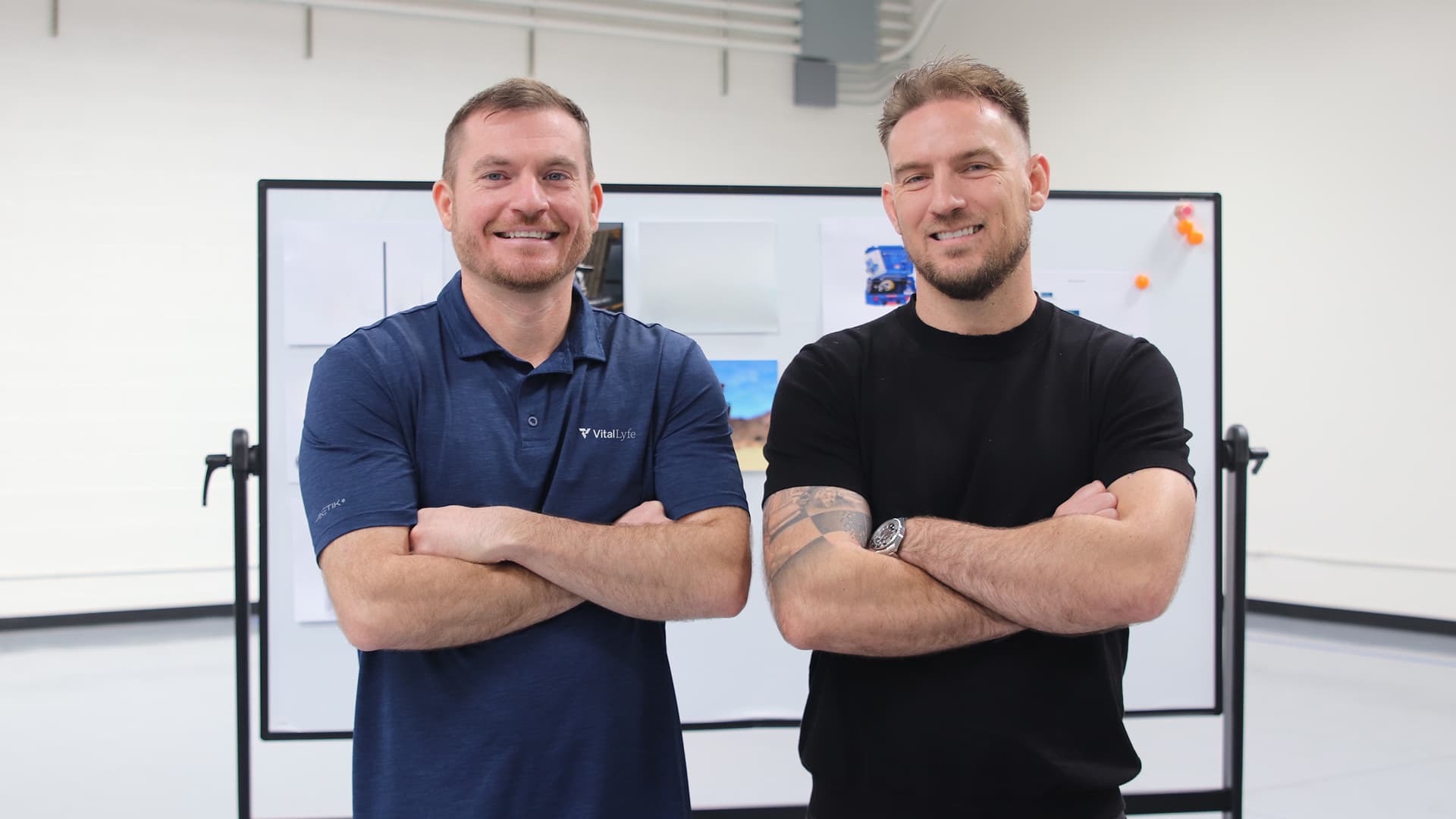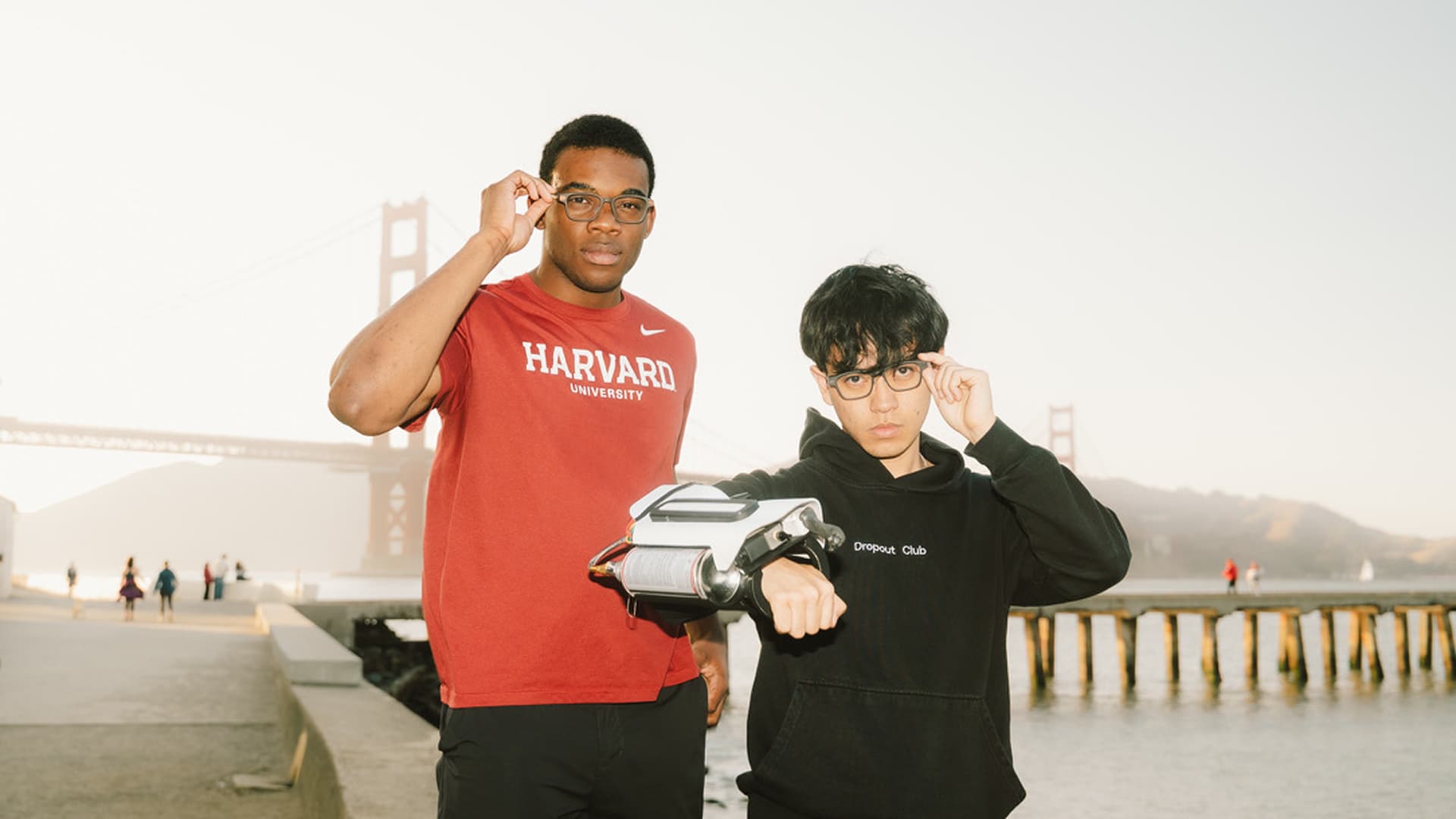Table of contents
“When I find myself in times of trouble, Mother Mary comes to me. Speaking words of wisdom: let it be.”- Paul
I’ve often joked that the world’s most popular prayer was written by The Beatles. Anyone who disputes that Paul was writing about Jesus’s mother has not fully meditated on the lyrics of “Let It Be.” As a Catholic who turns to prayer in both mundane and bruising moments, the best options for meditation were once pseudo-Christian Spotify playlists (alas, the letter from St. Paul of Liverpool) or clunky websites that seemed as ancient as the religions they represent. For Jews, Catholics and Muslims, most of our experience with religion online seems stuck in the days of the early Internet; though Jesus walked the earth 2000 years ago, we’re somehow praying in the aesthetic of 1997.
For the last decade it seems that the only area of consumer technology untouched by venture capital was religion, despite the billions who claim adherence to one. Perhaps that’s because for many technologists, religion seems antithetical to the ethos of building the digital world in the 21st century. As New York Times columnist Ross Douthat, arguably America’s most prominent Catholic intellectual wrote in last week’s Sunday Review, America’s biggest problem with religion is its lack of cache among elites: “Even if there is a resilience in American religion—especially in evangelical Christianity, still the most numerically robust form of faith—it doesn’t alter institutional faith’s general weakness, it’s limited influence, its subordinate position to other personal affiliations, from partisanship to ethnic identity to sports or superhero fandom.”
The long-held narrative is that religion—particularly Catholicism and institutional Christianity—are dying in America. In 2019, the Pew Research Forum noted the decline of Christianity “continues at rapid pace” in the U.S., with 65% of American adults describing themselves as Christian, down 12 points over the past decade. The number of Americans who belong to a church, synagogue or mosque is even more bleak, with 47% of U.S. adults claiming membership, down more than 20 points from the year 2000. Meanwhile, the “Nones,” or the religiously unaffiliated, have grown from 17% to 26% in a decade, making nonbelievers the fastest growing religious affiliation in America.
These data points would seem to suggest that building a company for the world’s faithful—particularly Catholicism, the largest global religion with 1 billion followers—is perhaps not timely. But faith doesn’t end because of institutional decline. What the data doesn’t suggest is how prayer is evolving, particularly as technology seeps into every aspect of our daily lives. Though many Americans are defining themselves as unaffiliated, the data suggests that we haven’t become godless, but rather more spiritual—perhaps even more seeking. The church-going rate in modern America doesn’t look very different from the rate pre-World War II, just before the post-war revival of American Christianity. The number of people who define themselves as “religious” globally is growing, now at 84 percent. While American Catholicism is arguably declining by one metric (the “butts in pews” metric, as Catholics like to say) it’s still strong—if not more important— in other areas: Catholic schools still educate two million high school and elementary school students annually and play an important role in educating low income Americans. Catholic colleges still exhibit influence greater than their endowments or enrollment would suggest. And our political arena—from the courts to the presidency—are somehow overrepresented with Catholics who claim ardent practice. What to make of these contradictions, particularly as they dovetail with the greatest technological shift in history?
Hallow is a company born of these contradictions, the very paradoxes we confront in most faiths. The balance between faith and dogma, spirituality and intellectualism, reason and revelation—the same paradoxes that theologians wrestled with throughout history—make building a company with the aim of “bringing peace and strengthening faith” a little different than most venture-backed startups. But while the media and demographers predict increasing secularization, Hallow is leading the way in showcasing a counter-narrative: that Americans are engaging with the divine in a different way than previously defined, and that prayer is more powerful and widespread than ever.
Hallow is a Catholic meditation app, deriving its origins from ancient meditative traditions that our modern iterations have borrowed from. But the founders of Hallow—who met at Notre Dame and each have unique and powerful faith journeys— have described their mission as far greater than meditation alone:
“We believe that spirituality has the potential to radically change our lives…And we believe that if we’re able to combine this beautiful spirituality with the world-class technology and design it deserves, it might not just bring peace to our lives, but to the world.”
While it’s hard to create a cathedral in an app, Hallow has built a powerful and rapidly growing community— a guide for the perplexed, the seeking and those who choose to practice greater engagement with their faith.
When we first met Alex Jones in 2019, he was a student at Stanford Business School pitching Hallow at an open pitch day where I was a judge. What struck me most about his pitch was not what he was saying, but where he was saying it: on a university campus where students are passionate about crypto, self-driving cars and the future of AI, not the Lectio Divina. In a place where students are desperate to find jobs in venture capital, Alex’s seriousness and focus on Catholic meditation stood out. And it became clear to me that the archetype of the ostracized founder—or a founder who must stand in front of the room and defend a contrarian thesis that will be laughed at, mocked or belittled— becomes doubly hard when one’s defending a faith. Indeed, when comparing Alex’s pitch to the thousands I’ve seen during my venture career, it was among the most contrarian and counter-cultural narratives I’ve heard.
But what was more shocking than this moment is what came after it: the lockdowns and the shuttering of churches, synagogues and mosques around the world because of COVID, leading the faithful to search for new ways to worship during one of the most trying years in our collective memory. This change alone would lead to growth in digital products for the faithful. But I believe we’ll find that the category of religious technology surged in 2020 not solely because of physical lockdowns on churches, but because of the collective and contemplative turn inwards all of us were forced to make. As a society, we confronted fear, death, and the deep anxiety that comes with mass trauma. Many people lost everything: their jobs, businesses, spouses, parents, children and loved ones. The luckiest among us were cloistered with family in a way that brought renewed focus on home life. And as debates raged about what type of society we wanted to build, we were forced to ask ourselves important questions: after losing a year of our lives, what type of people do we want to become? When we emerge from the pandemic, who will we be?
It’s hard to believe that the profundity of these questions can be reflected in the data room of an early stage startup, but the growth of interest in Catholic meditation across demographics—age, gender and region– paints a different and more vibrant picture than the one Pew Research Forum has routinely told us. Perhaps more people are seeking and turning to ancient traditions to answer this question: what kind of people are we? Hallow’s story suggests we are on the cusp of another religious revival, one that mirrors the story of startups across sectors: a reshaping of sorts that allows communities and truths to thrive in the digital world.
We at General Catalyst are a diverse team of people who practice many faiths, ancient and modern. From Jews to evangelicals, Catholics to humanists, we recognize we are part of a singular American experiment that makes religious freedom its cornerstone. We’re proud to lead the Series A of Hallow and support this extraordinary team as they build the future of faith for the emergent digital world.









_r2_v1%20(1).jpg)
_r3_v1.png)

